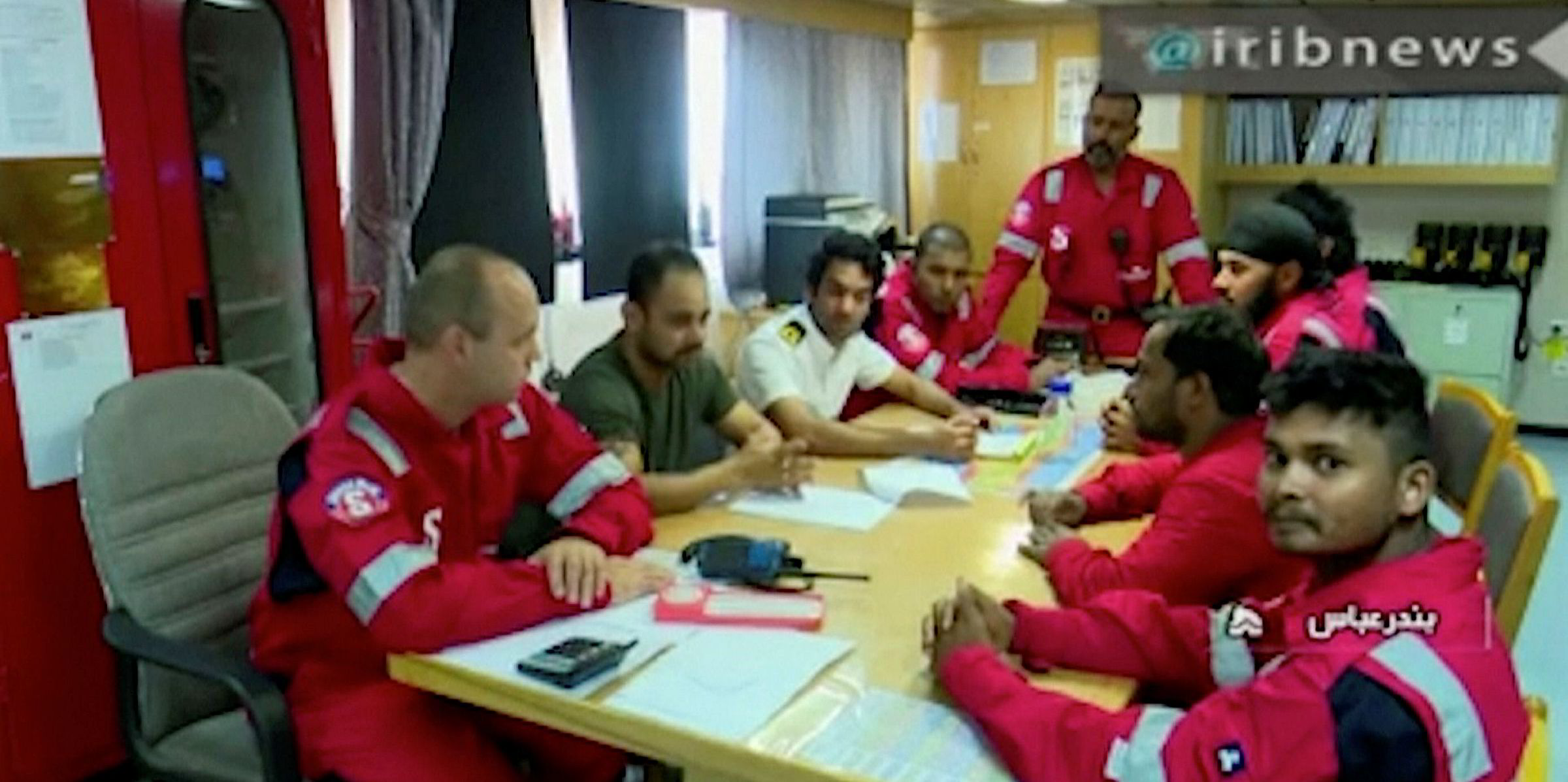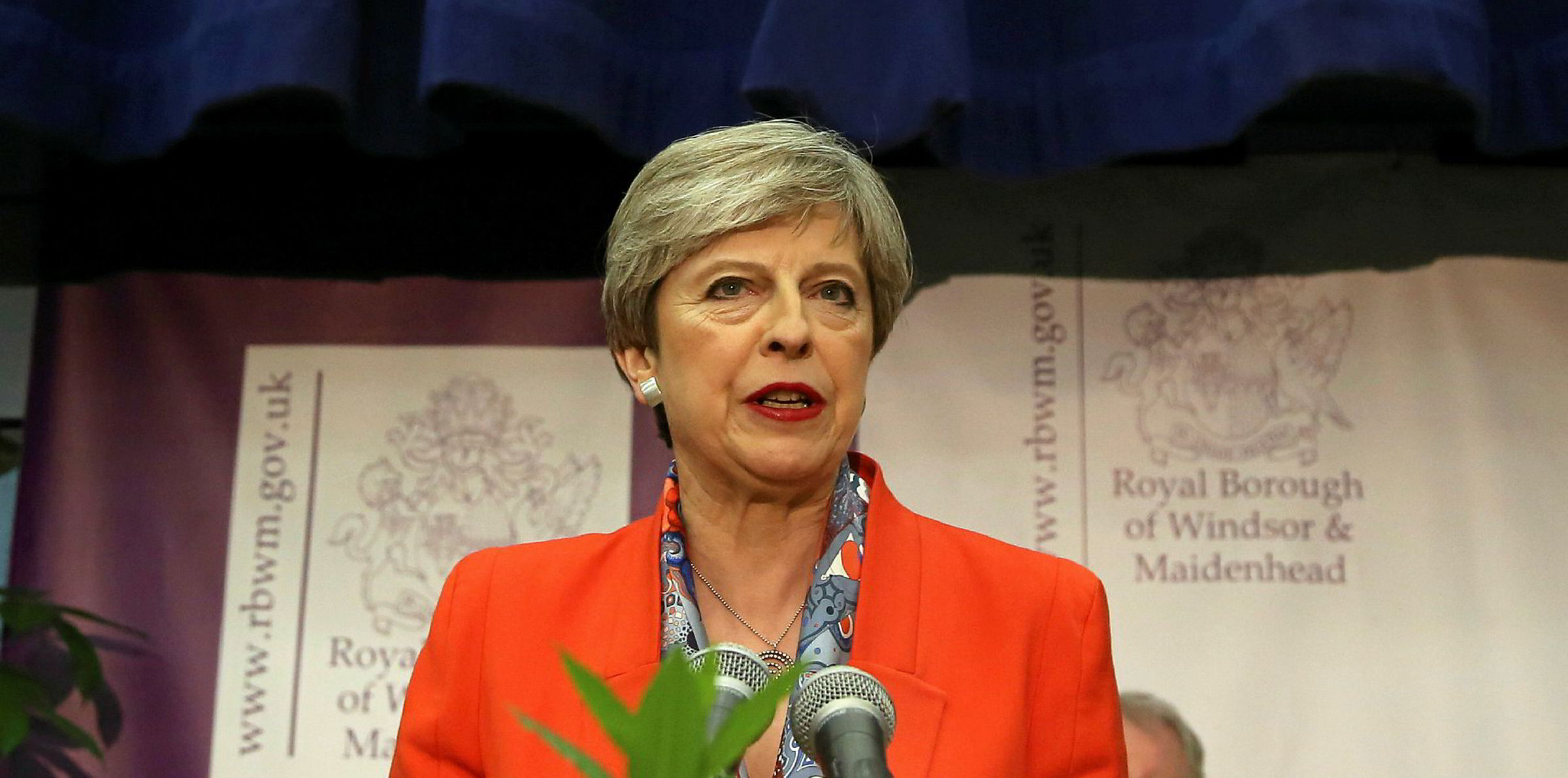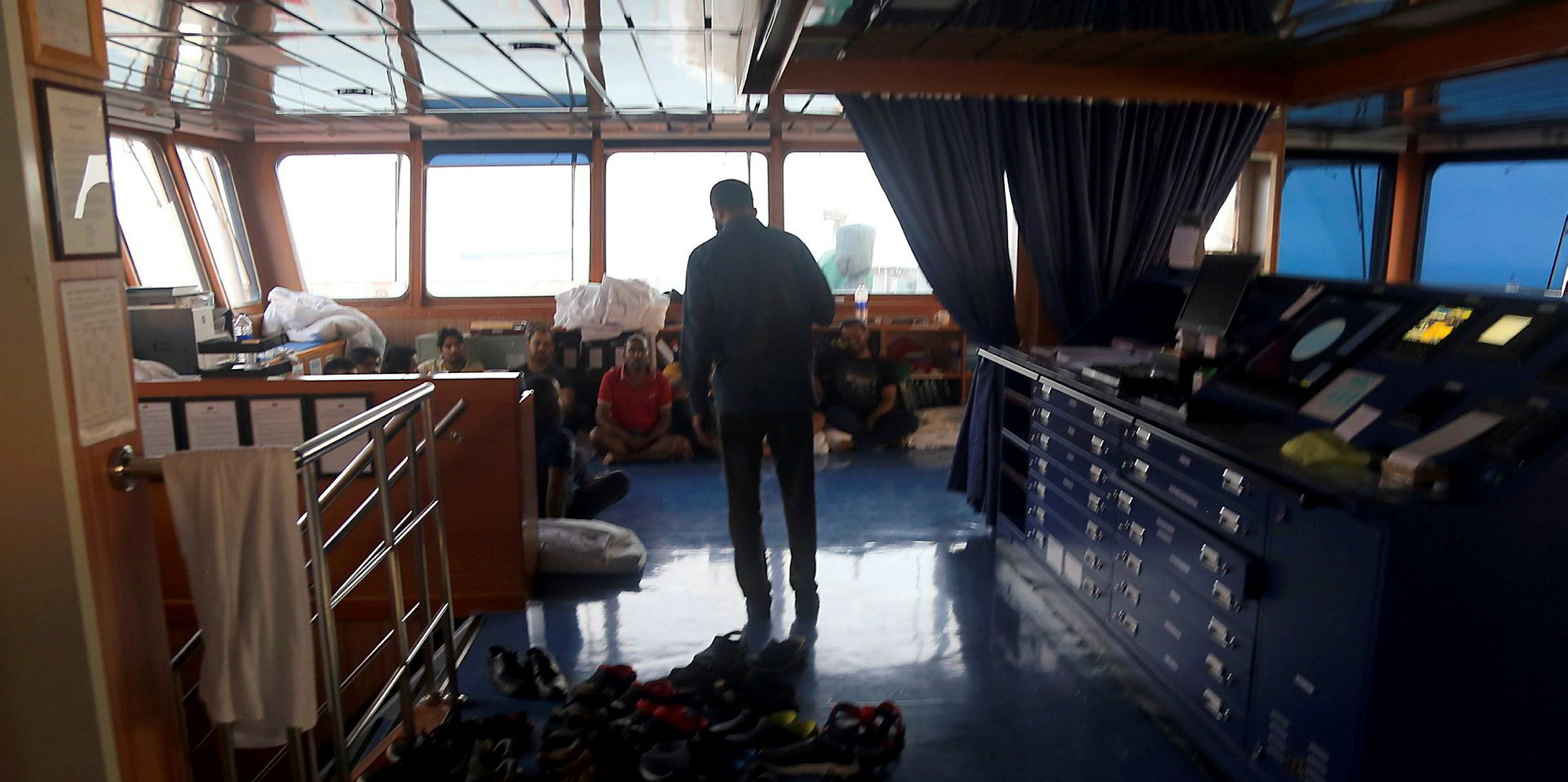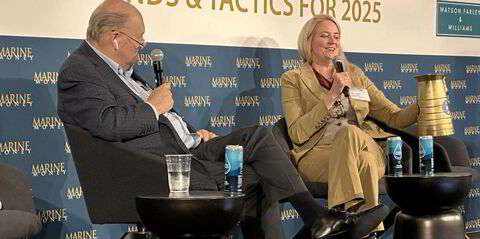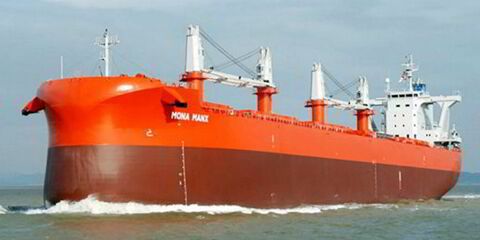Could anti-piracy measures have prevented the seizure of the Stena Impero by Iran on Friday?
The 50,000-dwt tanker (built 2018) with its 23 crew is anchored at Bandar Abbas after Iran succeeded in arresting a UK-flagged ship in retaliation for Gibraltar seizing the Grace 1.
Stephen Askins, a partner at UK law firm Tatham & Co, said: "As an industry scarred by Somali piracy, we should surely have been more alive to the severe limitations in naval warships protecting all vessels 24/7.
"This was a real and present danger and the response and protection failed."
Askins said UK warship the HMS Montrose was about 25 miles from the ship and would have taken too long to respond.
"It is likely that the master of the Stena tanker was aware that HMS Montrose was around and perhaps they had spoken and that was comfort enough," he added.
"But could, or should, more have been done to deter and prevent the boarding using ... the tactics deployed against pirates? In saying that, I am not criticising the master, and now the Iranians have their leverage for the Grace 1, it may be that there will be no further captures."
Askins asked whether the Iranian ship could have fast-roped so quickly onto the deck of the tanker if the winching spot had been covered in barbed wire and the vessel's fire hoses had defending the vessel from attack.
"Is that a valid course of action to meet this sort of threat? Those actions may have deprived the pilot of some clear visual reference points and forced it higher. The main, fixed fire hoses on deck could even have been aimed at the rope. Perhaps the Iranians would have thought twice or looked for an easier target," Askins said.
He added that had the crew retreated to a citadel and the ship either steered remotely or been rendered dead by turning engines and generators off, then that would have given the HMS Montrose a chance to get there.
There would no doubt have been a stand-off but one suspects that the Iranians would have been given a chance to retreat gracefully
Stephen Askins, a partner at UK law firm Tatham & Co
"There would no doubt have been a stand-off but one suspects that the Iranians would have been given a chance to retreat gracefully," he said.
Next moves
Regarding the next moves to release the tanker, Askins said: "There will no doubt be the sound of stable doors slamming shut over the coming days but the release of the Stena tanker is now dependent on a diplomatic solution. Ships that have been interdicted by the Saudi coalition navy off Yemen have found themselves held for months and, in one case, two years.
"These are not easy jurisdictions and the UK will be under pressure from the US to stand firm in Gibraltar. The UK will no doubt want Iran to agree to an exit strategy which will require as a first step Iran to agree that the oil on the Grace 1 cannot go to Syria.
"That would pretty much be impossible to track but would be a pragmatic first step, although an arrest of the Grace 1 by a third party or by forfeiture proceedings in the US would see the stalemate continue."
Lack of options for UK
Security company Dryad Global maintained its previous assessment that the latest incidents represent a further evolution of localised diplomatic tensions between the UK and Iran.
It is increasingly clear that the UK has diplomatically mis-stepped, and probably miscalculated the levers available
Security company Dryad Global
"It is emergingly clear that the US military presence and rhetoric regarding a military response has had a notable effect upon Iran, and as such the direct targeting of US vessels is unlikely.
"In addition, the recent redesignation by the US of the IRGC [Iranian Revolutionary Guard] as a terrorist organisation has significant legal implications regarding the use of force by US forces.
"The UK and wider international community has not taken such a path, and as such it is highly likely that the UK and its international partners will be restricted to the use of force in self-defence only, and as such will find credible naval enforcement beyond deterrence and obstruction a challenge."
Dryad said the UK has a lack of viable military options that are not escalatory.
"It is increasingly clear that the UK has diplomatically mis-stepped, and probably miscalculated the levers available," it added.
"Tehran was willing to respond to the seizing of the Grace 1. The diplomatic and security fallout from this miscalculation will not be resolved in the short term, and will likely provide a contextual mood music for British-Iranian relations into the medium term."
